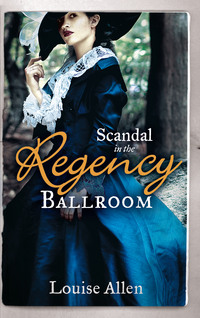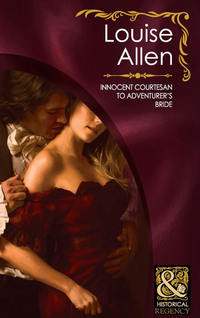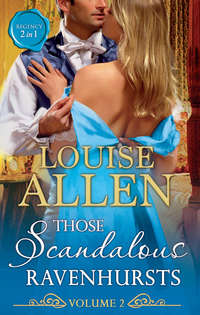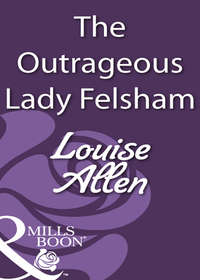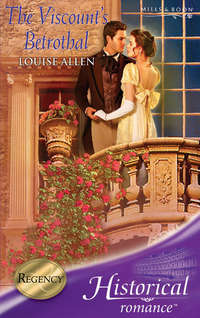
Полная версия
Snowbound Wedding Wishes
‘Is there anything I can do for you, Mrs Weston?’ a deep voice behind her enquired as she shook out a chemise. Emilia turned and there he was in the doorway, the colour back in his tanned cheeks, shaved to within a painful inch of perfection, thick black hair combed. He managed to look the English gentleman even while filling out Peter’s homespun shirt and leather waistcoat with his wide shoulders. His long legs were encased in battered old breeches and well-darned stockings, his feet in borrowed shoes were set wide apart on the flags.
Do for me? Emilia blinked and tried to rescue some trace of common sense, some ghost of the practical mother and alewife. Oh, my goodness. Stop looking at me with those dark blue eyes, for a start. That would help.
Even cold, soaked and grumpy he had been a large, attractive male. Now, for an overworked, lonely widow, this dark, frowning, punctilious major was temptation personified and she must be all about in her wits to even think about it. She swallowed. His eyes narrowed.
Giles always said she wore her thoughts on her face. Emilia dropped her gaze to the embarrassingly intimate garment that was dripping in her hands and wrung it out with a savage twist while she dragged her treacherous thoughts back to practicality.
Chapter Two
‘Shall I bring in some more logs?’ Hugo offered into the brief silence. No wonder Mrs Weston was blushing—he had seen what she was washing all too plainly. Not that it wasn’t a perfectly plain and workaday chemise, but even so…
‘And get soaked and cold again? I have only so much dry clothing for you.’ She was teasing, rather than irritated, he hoped. The quick blush had vanished and she was composed and smiling again. ‘Thank you, but we brought in a good supply of fuel this morning when the rain threatened. You might want to make up your bed now and let it get warm by the fire, though. There are some straw palliasses and blankets and so forth under the stairs.’ She pointed to a cupboard. ‘When we have the big brew for the midsummer festivities I have helpers here all night and eventually they talk and drink themselves to sleep.’
He found the things as she said, neatly stacked and rolled, blankets and linen folded around sprigs of lavender, all orderly and fresh like everything he had seen of her home and business. How much work did it take for one slightly built woman to maintain this, even with two willing boys to help her? Even as he worried about that, the image of her, strong and slender beneath his body on these palliasses in front of the fire came from nowhere to stop him in his tracks.
‘Are your servants keeping to their own cottages in this rain?’ he asked as he closed the cupboard door firmly on his fantasies.
That provoked a snort of laughter. ‘Servants? This is not a coaching inn, Major! Mrs Trigg comes in once a week to help me scrub, Peter Bavin does a couple of days a week for the heavy lifting—when he isn’t trapped on the other side of the river with the bridge down and the meadows flooded.’
She shook out some more garments and Hugo recognised his own shirt and stockings. He should never have let the boy take them, she had far too much to do without his washing as well. ‘There,’ she said. ‘All done.’ Everything was draped over airing stands on the far side of the fire, his shirts effectively providing a screen for more intimate items at the back.
‘If you will just bring that pot to the table, Major.’ The boys scurried around, finding plates and knives and producing bread from a big stoneware crock. There was stew, simple and savoury with fluffy herbed dumplings floating in it, bread and butter, cheese, stewed dried apples and ale to wash it all down with. Hugo tried not to eat like a wolf, despite second and then third helpings being offered.
‘Thank you, ma’am. It is delicious, but I’ll not eat you out of house and home—you will not have been expecting to cater for a visitor tonight.’
Mrs Weston sent him one of her flashing smiles. ‘It is a pleasure to feed anyone who appreciates my food. And we will not go short, believe me. I have ample in stock for the winter and once we can communicate with the outside world, fresh supplies are not so very far away.’
‘Where are we? I must have passed between Berkhamsted and Hemel Hempstead in the dark—my map had turned to mush and I couldn’t read the compass with no light. I was heading, I hoped, for the road towards Northampton.’
‘This is the hamlet of Little Gatherborne. On the other side of the River Gather is Greater Gatherborne and we are about six miles from Berkhamsted that way—’ she pointed ‘—and about eight in that direction from Watling Street, which is the road you want.’
‘That’s a Roman road,’ Nathan piped up. ‘Joseph and I speak Latin so if there are any Romans left we can talk to them.’
Latin? Boys from a common ale house? He was beginning to suspect that it was a most uncommon one. ‘I think they have all gone, Nathan.’
‘How do you know my name, Major? No one else can tell us apart.’
‘Except your mama, I assume. I am used to having to learn the names of dozens of men at a time. You learn to spot The little differences.’
‘Your ears!’ Nathan jeered at his brother.
‘Nathan! The pair of you, clear the table and then off to bed with you. The major doesn’t want to hear boys squabbling.’
Actually, to his surprise, he didn’t mind it as much as he thought he would. They were lively and sharp, and even on their best behaviour seemed to fill the room, but he liked their honest reactions to everything and their obvious devotion to their mother. It was not how he had been brought up, but then he had been raised as an orphaned earl from younger than these two were now, and in a very different setting. The mother of these boys seemed to encourage them to express opinions and emotions.
He tried to imagine his elderly guardians confronted by these two and had to suppress a grin. A gentleman is in control of his emotions at all times. Loss of control is a sign of weakness in a gentleman. The so-called tender emotions are for women and, in men, lead to weakness of resolve, vulnerability and effeminacy. The old boys had a complete certainty that he had imbibed very thoroughly. It had made him a good officer and landowner, but listening to the enthusiastic chatter now he felt an unfamiliar twinge of envy at their freedom.
Hugo got up. ‘Shall I check on the animals?’ He had to make sure Ajax was settling down with no ill effects from his drenching and it would get him out of the house and away from the disconcerting feeling that he was being absorbed into the family when he could not speak the language. That and the decidedly disturbing effect of Mrs Weston’s smiling hazel eyes on his equilibrium.
‘Oh, thank you.’ She looked up from a brisk discussion of how much washing was necessary for boys on a cold winter evening. ‘I would appreciate it.’
Either Emilia Weston was a very nice woman, Hugo thought, taking the lantern off its hook and lighting it before going into the stable, or she was not used to getting much help. Or perhaps both, which worried him. But there was not a great deal he could do to help; tomorrow he would be on his way. He would pay her well for his bed and board, of course, but still it left him feeling uncomfortable, as though he was watching a delicate thoroughbred mare being put into harness and made to pull a burden too great for her strength, however strong her spirit.
Ajax was dozing, one hoof cocked up, his jaw resting on the edge of the virtually empty manger. The horse opened his eyes and regarded Hugo lazily as he checked on the water buckets, ducked outside to make sure the pigsty was secure, then bolted the outer door. Hugo leaned on the horse’s rump for a minute or two, relaxing against the familiar bulk, his mind running round in circles. He was tired. Beyond tired, but not sleepy.
He went back into the house, bolting the door behind him. The taproom was empty, his pallet lying close to the fire promising rest if not sleep. Hugo began to check the shutters and front door locks methodically. His hand was on the open shutter when she spoke behind him.
‘Leave that one, please. Just turn down the wick on the lantern, but leave it alight.’
‘You are expecting someone?’ He did as she asked and turned back, steadying his breathing when he found himself face to face with her. ‘The rain has almost stopped.’
‘Expecting? No.’ Emilia Weston stood untying the strings of her apron, not a brisk mother or a damp, smiling temptress any longer, simply a tired young woman. All the more reason not to reach out and pull her into an embrace that would be anything but comforting, he told himself. ‘But then I was not expecting you either, and I assume it was the light from that window that brought you here. There may be other travellers out in this. I have made tea—would you like some?’
She turned before he could answer and went back into the other room. Hugo followed and took the battered old armchair opposite hers, flanking the wide range. ‘Thank you, I would appreciate that. Are stray travellers commonplace here, then?’ He guessed the tea was her night-time indulgence, an expensive treat. He would send some from the nearest town as a present.
She passed him a cup and leaned back with a sigh, her whole body relaxing with cat-like sensuality. ‘Ah. Peace at last. No, you are the first lost soul. But I would always leave a light in the window when Giles went out in the evening and I have never got out of the habit, I suppose.’
‘Giles was your husband, Mrs Weston?’
‘Call me Emilia, won’t you? No one calls me by my proper name any more. Yes, Giles was my husband. He died three years ago.’ She sipped her tea and stretched out her toes to the blaze.
Just how old is she? Hugo wondered.
‘Giles worked at night. He was a gambler, a card player.’ His expression must have betrayed his thoughts, for she added hastily, ‘Not a sharp, you understand. He never cheated, he was just a very, very good gambler. We eloped, I’m afraid. I was supposed to marry his elder brother—not that we were in love or anything, just one of those family things. You know?’
Hugo nodded. He knew how these things worked, although there was no one to arrange a suitable marriage for him, that was down to his own efforts. And he had better be getting on with it.
‘But Giles and I fell in love,’ Emilia said, gazing into the fire. ‘And Mama and Papa would not approve because he was the younger son and wild and I was only just eighteen. So we ran away. We were very young and very thoughtless. It did not occur to me how much shame I was bringing on my family.’
Her voice wavered and she glanced up, her face blurred by the rising, fragrant steam. ‘I am talking too much and shocking you, Major. I am sorry, but you will be on your way tomorrow and we will never meet again and it is so…soothing to talk to someone like this. But I will stop embarrassing you.’
‘No. You aren’t embarrassing me.’ Normally he would have recoiled from confidences like this, but he was intrigued and to talk to a woman in this way was a novelty. Besides, it was all about her feelings and he doubted she would expect him to reciprocate.
‘We are like ships that pass in the night. Or, no, that is too well worn a cliché. Perhaps we are two birds sheltering from the storm in a bush and we will fly away on our own courses in the morning. What happened, Emilia? And my name is Hugo.’
‘I remember.’ It was not as though she would forget anything about this dark, serious man who had arrived so dramatically and who seemed so very alien. He was closed, as though a door was shut firmly on his emotions, and what she saw on the surface, although undoubtedly the real man, was no more an indication of what was happening under the surface than a view of a shuttered house revealed the life of its inhabitants. She liked his bird analogy, even though she was a sparrow and he was, she guessed, an eagle.
It was a novelty, that reserve of his. Her neighbours were unsophisticated people whose lives were unprivileged and whose reactions mirrored that. They worked hard, played hard when they had the opportunity and both loved and hated without concealment. Emilia liked that honesty, responded to it. She and Giles had lived in the open, too, enjoying every happy moment, storing up joy against the black times, pushing away the memories of the families they had left behind.
Perhaps, she thought as she watched those big, capable hands enveloping the china cup, her reserves of joy were running low and needed replenishing, although why that would draw her towards someone full of shadows and detachment, she did not understand.
He was aware of her as a woman, she could sense it. But the boys liked him and she trusted their instincts, as she trusted her own. Whatever Hugo Travers was concealing behind that unsmiling face, it was not villainy.
‘What happened?’ She made herself go back in time to that dreadful night. ‘We were in Aylesbury, west of here. Giles was deep in a game and winning, so they told me, although the money miraculously vanished afterwards. His opponent accused him of cheating, drew a knife. The man said it was in self-defence, but of course, all the witnesses at the inquest were his friends and neighbours.’
The cold swept through her as it had when she had heard the shouting in the inn parlour below, had left the children to run downstairs. No, she would not think about what she had found, only of Giles alive and laughing.
‘I had little money and two three-year-old boys to feed,’ Emilia went on briskly. ‘I went into the market to look for work and helped an elderly man who tripped and fell on the cobbles. He had broken his wrist, so I drove his cart home for him, all the way here with the children tucked into the malt sacks behind. He was the brewer and this was his alehouse. I worked for him for two years and then, when he died, he left it to me, bless him.’
‘So you are now the alewife. A hard life.’
That worried him, she could tell. ‘It is not restful, that is certain. But would you comment on it if I was not, as you suspect, gentry-born?’ she wondered out loud.
She judged from the frown that he did not like the implication that it was snobbery that made him feel that way.
‘It would be hard for any woman, alone and with children to rear, and I suspect that things will become harder in the countryside now the war is over. The price of grain will fall, men will be flooding back from the army with no occupation to go to. Victory always has a cost.’
Emilia shrugged away the cold worry that breathed spitefully down her neck, as she did whenever it crept past her defences. ‘All one can do is work and hope and plan.’
‘What do you plan for those boys? the church?’
She picked up his meaning at once and laughed. ‘The Latin? I do not think so, somehow, do you? The law, I hope. I teach them at home and then they go to the vicar in Great Gatherborne for Latin and Greek twice a week. He likes them and finds them intelligent to instruct, so he takes them in return for his household’s ale.’
‘And one day they will be leading lawyers and maintain their mama in the manner befitting her?’
He grinned; it was the first time she had seen a smile crack that lean face and Emilia blinked at the impact. Enough of her problems—she had allowed this to become too personal and, along with the fear of revealing too much and making him uncomfortable, speaking of the past was like rubbing salt into half-healed wounds.
‘And have you far to go tomorrow?’ she asked. ‘Your family will be worrying that you have been delayed.’
‘If the roads are clear, I should be home in two days, easily.’ He held out his cup to be refilled when she lifted the teapot from the trivet. ‘But no one will be worrying about me, I have no family and the servants just know that I will be back in time for Christmas.’
‘None at all?’ What an appalling thought. She almost said it out loud. What would she do without the boys? And he had no one. ‘You will pass Christmas with your friends, no doubt.’
He did laugh then, a deep chuckle. ‘With so many of my fellow-officers all back in England together I had invitations aplenty, believe me. I had the choice of family gatherings with, I was promised, a dozen charming little infants all overexcited by the thought of presents, or two house parties well supplied with eligible young ladies on the look-out for husbands. Then there was the lure of a cosy gathering with not one, but three great aunts in attendance. My friends, who I had believed were carefree, sociable bachelors, all turned into devoted family men on arriving back in England and, I confess, I do not understand families.’
‘You do not?’ Her tiredness vanished as she stared at him.
‘I was an orphan from the age of three, brought up by four elderly trustees and a houseful of devoted staff,’ Hugo explained without, to her amazement, the slightest sign of self-pity.
‘But…were you not lonely?’
‘Not at all. Mrs Weston…Emilia, do not look like that! I had tutors and then I went to school and university and later into the army. I made good friends in all of those and when I was at home there was the estate to learn to manage. But I have to confess to not understanding how families work, the intimacy of them. And, frankly, faced with the thought of two weeks of someone else’s family en fête, it was no hardship to travel home,’ he added wryly. ‘Besides, I have much to catch up with and plans to make for the new year.’
She must have made an interrogative noise, for Hugo broke off and the shutters were over his eyes again. ‘It is time I settled down,’ he said abruptly and got to his feet. ‘I have been running the estate at arm’s length for five years while I have been in the army. And I must stop talking and keeping you from your rest.’
Emilia stayed curled in her chair as he took his cup to the stone sink and rinsed it out with, she guessed, the tidy habits of the soldier. Even as weary as he must be, he still moved beautifully with the unthinking grace of a very fit man. She fixed her gaze on the tea leaves in her cup, but there was nothing to be read there. ‘Goodnight, Major. Sleep well.’ She wondered if she would.
‘Goodnight, Mrs Weston. And thank you.’ He paused between the two rooms. ‘You should lock this door, you know.’
‘Oh, don’t be ridiculous,’ she muttered as it closed and she stood up and stretched the stiffness out of her back. Major Hugo Travers was certainly dangerous to women, especially one who had been on her own far too long, but it would be the loss of his company she would feel when he went on his way in the morning that would do the damage, not any improbable assault on her virtue.
Her occupation and humble status cut her off from anything other than the polite exchange of greetings with the vicar, the squire and their families, even though they tacitly recognised that she had been one of them. The villagers treated her amiably, but also with the reserve that showed they thought of her as Quality. She sometimes concluded she was like the governess in a big house, neither family nor servant, stranded somewhere in the middle and lonely as a result of it.
‘On which self-pitying note you can take yourself to bed, Emilia Weston,’ she scolded herself as she bent to bank up the fire safely. The rain had stopped, the night was still. The major would have a muddy ride tomorrow, back to his waiting servants and his big house and his plans to settle down into the peace of an England no longer at war.
Chapter Three
The silence woke Emilia into a muffled world and the cold blue light brought her out of bed to stand shivering at the tiny window in the eaves. Snow glowed in the moonlight, heaped up in great drifts and banks, whirling through the air as if some celestial hand was plucking the largest flock of geese in the universe. Silent, deadly beauty.
The light from the lantern in the taproom below cut a golden track into the whiteness and she offered up a quick prayer for any traveller caught out in this. Eerily, the beam of light widened. For a moment she did not understand, then she realised that Hugo must be standing at the window and had pushed back the shutter. The guilty flicker of pleasure took her unawares as she pulled on the heavy robe she had made from a cut-up blanket, found her shoes and tiptoed out to the head of the stairs.
The twins were fast asleep with the utter relaxation that only cats and children seemed to be blessed with. Emilia tucked the covers higher over their shoulders and went downstairs. Why? she asked herself as she crossed the kitchen and lifted the latch on the taproom door. What am I doing down here?
Hugo must have heard the latch. He had already turned, and she saw in the lantern light that he was fully dressed with a blanket slung around his shoulders. ‘What’s wrong?’ His voice was deep and low and sent a shiver of warmth through her.
‘Nothing. The silence woke me and then I saw the light spill out on to the snow when you opened the shutter and wondered if everything was all right.’ That was a lie and she never lied. What had brought her down?
‘It is already deep and it is settling.’ Hugo pushed the shutter almost closed. ‘How close are we to a turnpike road?’
‘Too far and when you get there it will be no better than this. Even the mail will be stopped if it is lying so thick.’
‘The post boys will get through, even if they have to take a horse from the traces and abandon the mail coach.’
‘They will reach the next inn, perhaps. But you are not carrying the mails, so why should you even try?’
Was it really such a prison sentence to be trapped here? But then he had shied away from all his close friends’ invitations because he did not want to be with a horde of children—and hers certainly qualified for the description—and he had been uneasy about her lack of a chaperon. Was that what the matter was? Not the interruption to his journey, not the presence of two lively boys, but her? Did he expect the poor lonely widow to make a pass at him? The idea brought the colour flaming up under her skin.
‘I am an unconscionable nuisance to you and, whatever you say about your supplies, you cannot have expected to be feeding a large man and a considerably larger horse.’
‘When the weather is like this the whole hamlet works together and shares food and fuel with everyone, residents and chance-met strangers alike. It is called neighbourliness, Major. Or perhaps on your big estate you are not familiar with the concept of neighbours and mutual dependence.’ She was fanning her temper as though she could cover her own embarrassment, and, deep down, her guilty pleasure that he had to stay. ‘We will set you to work for your board, Major, never fear. There are several elderly people to dig out and check upon and that will be the first task come morning.’
Even in the poor light she could see him stiffen, presumably with affront at being spoken to like that by an alewife. ‘I have helped dig out villages in the Pyrenees, Mrs Weston, you need have no fear that I do not know one end of a shovel from the other. And it is not that I do not understand and appreciate the hospitality of your community, merely that I have no wish to add to its burdens.’
‘Excellent. Then we understand each other,’ Emilia snapped. He did not like having to explain himself. Presumably majors did not have to very often, let alone ones who were well-bred landowners. ‘I will see you at first light, then.’ She gathered her inelegant robe around her with as much dignity as she could muster and swept out, remembering in the nick of time to close the door quietly so as not to wake the boys.
Idiot, idiot, idiot, she apostrophised herself all the way back up the stairs. You go and disturb a man in the early hours, you blush like a rose because you have no sensible excuse for doing so and then you bite his head off quite unfairly because he unsettles you. Emilia hesitated on the landing at the top of the stairs. Should she go back and apologise? And what, exactly, would be her explanation? No, there was nothing for it but to go back to bed and hope he was still talking to her in the morning.


